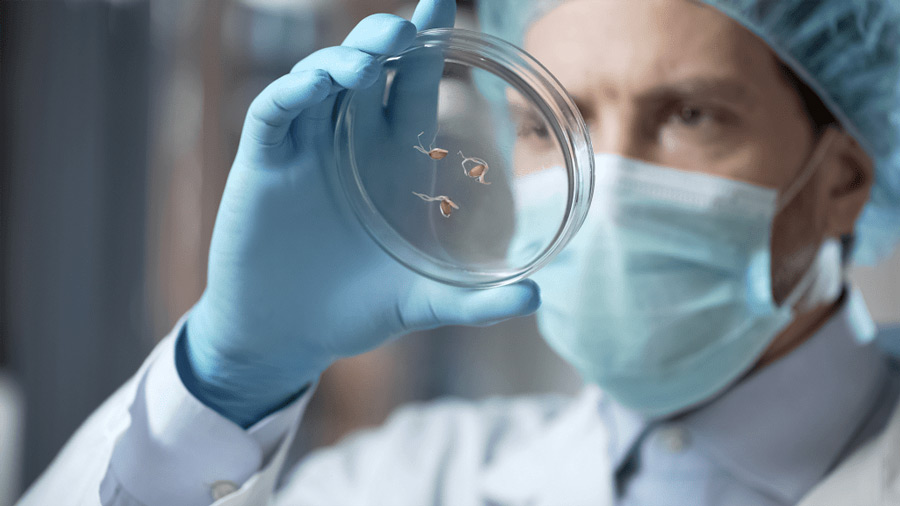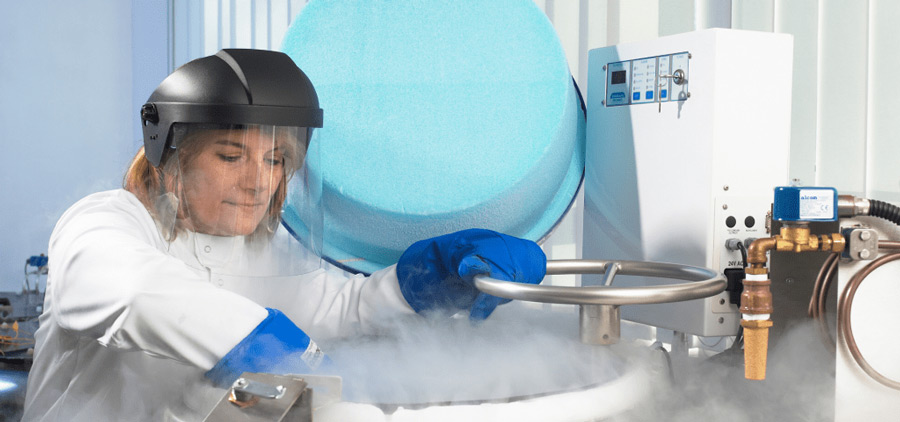Advertiser content
CHAP helping biosolutions industry to change perceptions
Provided by
CHAP is one of the four UK Agri-Tech Centres of Innovation. We bring together scientists, farmers, advisors, and pioneers to advance crop productivity and yield in the UK and beyond.
 © CHAP
© CHAP SUPPORTING the development of novel biological product solutions to help growers meet the evolving demands of sustainable crop production, is the aim of a new campaign from Agri-Tech Innovation Centre, CHAP.
Changing Perceptions brings together a range of CHAP projects, collaborations and activities that all strive for the same goal – facilitating evidence to improve trust and therefore uptake of biosolutions.
With pressure increasing on synthetic plant protection products and their availability, ensuring quality within the marketplace for alternative control methods is becoming ever important.
Commercial Director for CHAP, Linsey Cresswell said: “Although the market appears abundant with non-chemical solutions such as biopesticides and biostimulants, there can remain a reluctance at an on-farm level to truly commit to their use.
“Historically, a lack of evidence has been credited for this, which could be due to the large investment required to scale-up production and run robust replicated R&D trials, as well as it being a relatively unknown scope of active ingredients.
“The purpose of our campaign is to change perceptions, and we aim to do this by using our state-of-the-art capabilities and case studies to demonstrate efficacy and the value of this important product segment.
“There is so much innovation within the UK to tap into, we have the technology and capabilities at our fingertips. We just need to collaborate and drive it forward to give farmers the options they need to support a sustainable farming future.”
Although only recently launched, the ethos of the Changing Perceptions campaign has long been embedded within the work of CHAP. One of the current five strategic areas of focus is Innovative Crop Health Strategies – the cornerstone of the campaign’s development.

© CHAP
The National Reference Collection
To support this focus, a project taking place in conjunction with CHAP Partner CABI and with support from Russell IPM, is developing a new biopesticide to control cabbage stem flea beetle in oilseed rape. This uses an isolate from one of CHAP’s more recently launched capabilities, the National Reference Collection.
This online database is the first of its kind for the UK, offering access to and storage of crop-related microorganisms to help inform the development of new biopesticides. This includes the use of cryopreservation and freeze drying technologies to preserve the likes of fungi and bacteria such as Beauveria bassiana – an entomopathogenic fungus that causes white muscardine disease in insect hosts.
Culture storage and supply is overseen by CHAP’s National Reference Collection Technician, Sophie Lane, working with CABI Genetic Resource Curator Dr Matt Ryan. Sophie said: “Not only is the storage safe and highly robust, but the service can also be confidential, making it a secure environment for any strains involved in patent applications.
“This is a great opportunity to unite with the wider crop protection industry to enhance UK agriculture’s provision of alternative crop protection products and strengthen its future.”
It is hoped that as it evolves, the National Reference Collection will help to bring new biopesticides to the market, providing farmers with a broader range of scientifically-robust products.
Building networks
As well as offering state-of-the-art capabilities, an integral part of CHAP’s remit is to build networks within the agricultural industry and beyond. In particular, its New Innovations Programme brings together specialist sector representatives for a series of stakeholder workshops, to help define problems and scope areas of market failure, with a view to developing a business case for the delivery of a solution.
This year the team looked at developing a business case for the biologicals sector with input from industry players including product manufacturers Unium Bioscience, and regulatory experts Enviresearch.
Following the workshops and further exploratory work, CHAP has conceptualised a Biologicals Pipeline Accelerator and Demonstrator – a provision that links SMEs to the expertise and facilities they need for successful product development, supported by a network of field and farm trial sites.
Innovation Network Lead for CHAP, Dr Harry Langford said: “As one of the four Agri-Tech Innovation Centres, CHAP is an independent voice, ideally suited to build new networks and consortiums within our sector. We are delighted to have produced this business case, which we hope will provide valuable insight into how we might move forward as a collective within the world of biological solutions.”
Once implemented, it’s hoped that the solution will increase the number of new biological products successfully reaching the market and improve their integration into existing and novel integrated pest management (IPM) strategies.
It will do this by providing a brokering service to link SMEs to expertise and facilities that support the product development pipeline. This could be scaling up of production, product testing, regulatory compliance insight, registration support or investment and funding.
It will also offer a network of field and farm trial sites optimised for biologicals and IPM, providing both efficacy and optimisation trials.

Dr Alex McCormack © CHAP
Providing expertise
Facilitating the sharing of knowledge is also high on CHAP’s agenda. Scientific Support Coordinator Dr Alex McCormack will be speaking at Cereals later this month, presenting some of the biopesticide-related projects that CHAP is helping to expedite such as the CSFB biopesticide.
In a recent blog post on CHAP’s website, Dr McCormack discussed whether biopesticides could be the dawning of a Second Green Revolution – an area he is keen to explore during his slot at the event on June 30.
Dr McCormack said: “Incorporating biopesticides into a truly integrated crop management approach could be the answer to improving their accessibility from both a cost and understanding perspective.
“I have no doubt we will see this approach becoming the cornerstone of future crop protection systems.”
For more information about CHAP, visit www.chap-solutions.co.uk or e-mail enquiries@chap-solutions.co.uk
